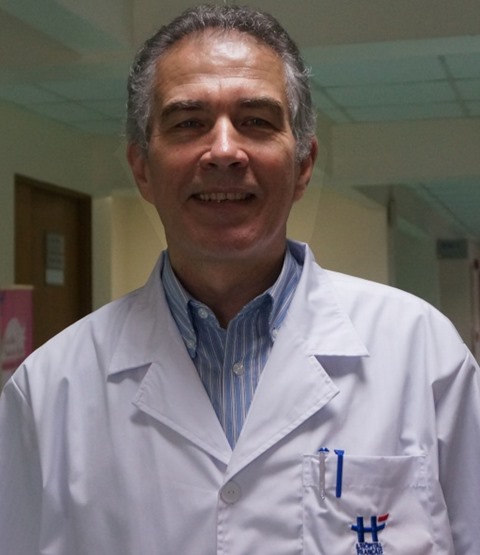 Life & Style
Life & Style

Headache, an almost universal human experience, is one of the most common complaints encountered in medicine and neurology
 |
| Dr Christian Brosset. — Photo courtesy of Hanoi French Hospital |
By Dr Christian Brosset*
Headache, an almost universal human experience, is one of the most common complaints encountered in medicine and neurology
Headache, an almost universal human experience is one of the common complaints encounted in medicine. About 90 per cent of the population experience at least one episode of headache over the course of one year, of which about 1 per cent result from a serious condition.
Take a close look at your headache and note down when it occurs, your symptoms and if there are any specific triggers, for example certain foods, lack of sleep, stress, wine or weather. Keeping a head ache diary may help determine your headache type and identify the best treatment.
There are many types of headaches, some are chronic and some appear all of a sudden. Chronic headaches are usually referred to as headaches which occur 15 days or more a month. Some types of chronic headaches include:
The most common types of headaches are tension headaches and migraines; they can appear as chronic headaches or only occur occasionally.
Tension-type headache (TTH):
Tension-type headache, is the most common headache as about 80 per cent of the general population suffer from TTH. The pain intensity is mild to moderate and is often described as having a pressing or tightening (non pulsating) quality that is not aggravated by routine physical activity, such as walking or climbing stairs. The pain lasts for at least several hours to days and is predominantly felt bilaterally.
Treatment
Simple analgesics and nonsteroidal anti-inflammatory drugs (NSAIDs) are effective in treating acute headache. Tricyclic antidepressants (especially amitryptiline) should be the primary choice in preventive medication for patients with frequent or chronic TTH. If you need any of these drugs multiple days during a week, ask your doctor for advice. Be careful with taking Aspirin, living in a Dengue Endemic area, Aspirin can make Dengue infection worse. Do not give Aspirin to your kids as it can cause a serious condition called Reye’s syndrome.
Alternative treatment options such as massage therapy; acupuncture may also help to relieve your symptoms.
Migraines
Migraines are another common type of headache. They typically affect more women than men. Migraine headaches can last from 4 hours to 3 days and usually happen one to four times a month. Migraine comes usually with a moderate to severe throbbing pain which has a pulsating quality to it. They can be on one side of the head but can also spread to the entire head. Migraines are often associated with nausea and vomiting and many people have what is called photophobia, meaning they are very sensitive to light and also sounds. In severe forms there can be neurological symptoms associated with a migraine attack, and the affected person may have warning symptoms known as aura occurring before the headache onset. These can include flashes of light, blind spots, or tingling on one side of the face or in your arm or leg. Migraines tend to get worse with exercise, which raises blood pressure. In children, benign paroxysmal vertigo and abdominal pain are considered as migraine equivalents. They usually stop after a good night sleep.
Migraine treatment is aimed at relieving symptoms and preventing further attacks. If you know what triggers your migraines, for example histamine rich foods such as chocolate and cheese, try to avoid them to prevent an attack or at least make the attack less severe.
If you already have a migraine it is best to rest in a quiet, cool and darkened room and take some pain killers such as, paracetamol or ibuprofen. Your doctor may prescribe some specific mediation for your which have been very effective for migraines and which include sumatriptan and zolmitriptant. In some cases, your doctor may prescribe preventative medications such as beta blockers, amytriptiline, topiramate, and others. Acupuncture and a massage may help relieve your symptoms together with the medicine.
What are headache emergency signs?
If your experience one of the following, you should consider it a medical emergency and seek medical assistance immediately:
These symptoms suggest a more serious condition, you should seek immediate medical attention to get a prompt diagnosis and treatment which may save your life.
For further information, please contact us at: (84-24) 3577 1100 or send us an inquiry here. — Hanoi French Hospital
*Dr Christian Brosset works at the Neurology Department at HFH and has brought with him his long term expertise disease prevention and treatment. Dr Brosset is a specialist in stroke management.
If you have any questions or want to book an appointment with our doctors, please contact us at our phone number 84 – 24.3577.1100, access www.hfh.com.vn, or email us at contact@hfh.com.vn, Address: 1 Phương Mai St, Đống Đa Dist, Hà Nội




